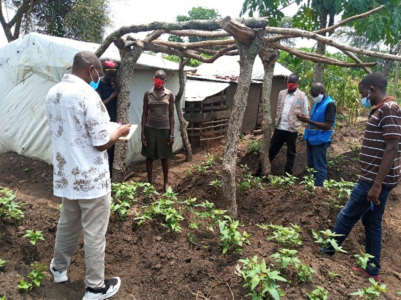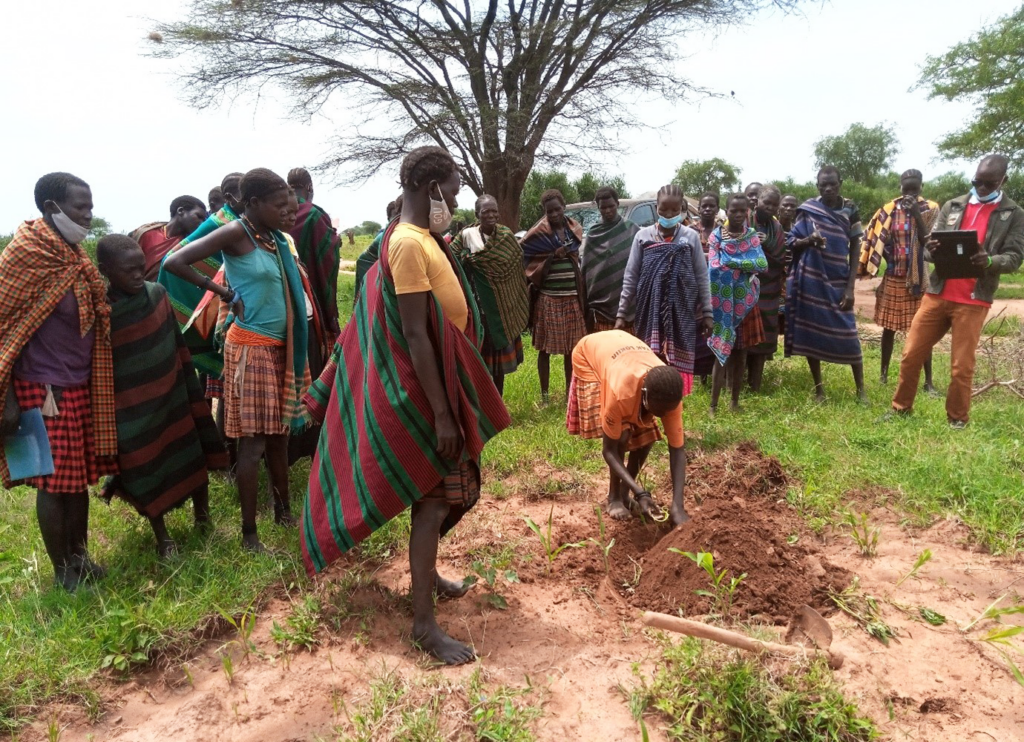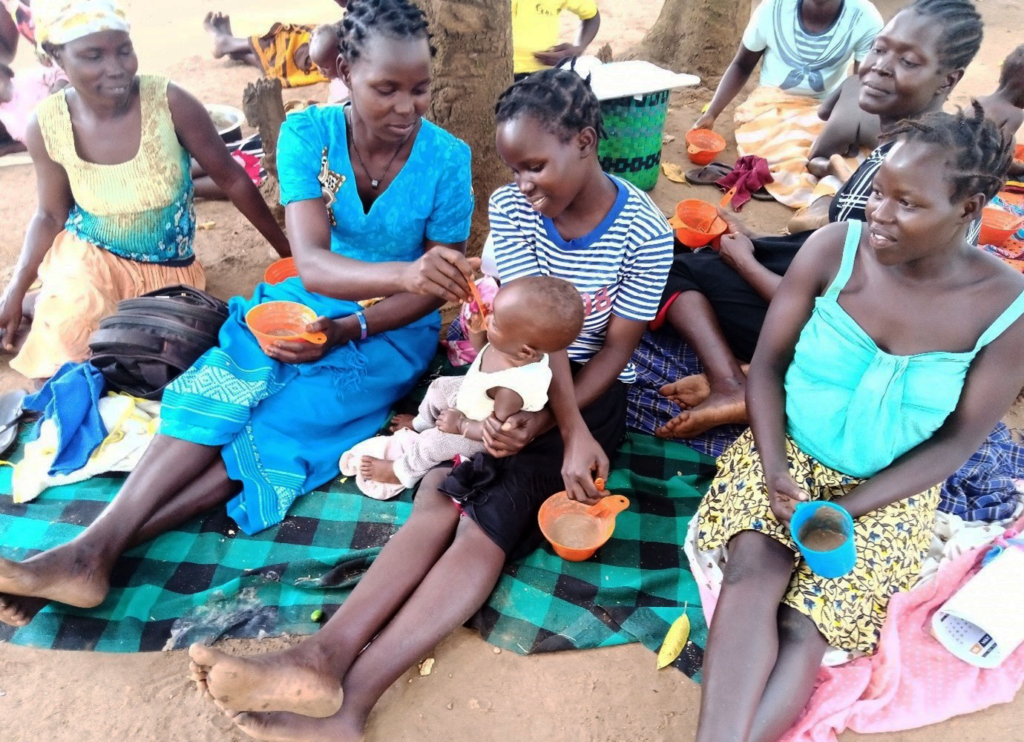Christine Julu, a South Sudanese refugee, has settled in Uganda’s Palorinya Camp, located in Obongi district, West Nile region. The adjustment to a new environment, especially with children, brings challenges, especially having enough food and nutritious food for the family. Thanks to the support from the Government of Uganda and humanitarian agencies like the World Food Program (WFP) and Lutheran World Federation (LWF), which collaborated with International Potato Centre (CIP), refugees like Christine have found stability.
Under the Development and Delivery of Biofortified Crops (DDBIO) project, funded by the Foreign, Commonwealth and Development Office (FCDO), CIP partnered with WFP and LWF to promote orange-fleshed sweetpotato (OFSP) as high-yielding and early maturing food security crop and as a low-cost source of vitamin A for refugees and host communities.
OFSP grows to maturity in 90-120 days. The short time it takes to grow makes it an ideal food security crop, and nutritionally, 100g of boiled OFSP root meets a child’s daily vitamin A needs.
Refugees like Christine, planted sweetpotato in the small plots allocated to them by the Government as they settled in. CIP provided sweetpotato vines and agronomic training, while LWF distributed the vines to farmers.
CIP supported LWF and WFP in nutritional training, including using Health Baby Tool Kits (HBTs) for complementary feeding of children, expecting and lactating mothers.
Overcoming the challenges of long distances and security
Despite challenges in accessing the Palorinya Camp due to the long distances and bumpy dusty roads, CIP and partners established three vine multipliers within the communities to sustainably supply vines within and beyond the district. Throughout the implementation, CIP and partners were mindful of safeguarding principles, particularly for vulnerable populations like children and women. Extra care was taken to guard against COVID-19 as the project was carried out during the pandemic.

About 400 km away from the Parolinya Camp, in Kotido, live the Karimajong people that CIP reached out to in collaboration with Mercy Corps, World Food Programe (WFP) and Andre Foods International (AFI). The Karimajong are pastoralists and crop production is secondary. With limited diversity of crops (mainly relying on sorghum), food insecurity and malnutrition are dire. Every year, scores of people die because of hunger and malnutrition. Cattle rustling and the insecurity caused by it is still another challenge the area faces.
“Don’t go to Nakaperimoru today. Yesterday, they killed a local councillor who the Karimajong rustlers thought was an informer. With this double cabin, you will be a target,” a local guide advised as we prepared to monitor the status of the vines we had distributed there four weeks earlier and since the area had received no rains.
Nakaperimoru is a sub-county in the Kotido district. In the Kacheri sub-county, in the same district, Morunyang Chabit, a vine multiplier in her 40’s, had successfully been trained on vine multiplication. She had bought goats from vine sale proceeds. The rustlers unfortunately stole her goats. She, however had the ability to bounce back following continued support from CIP, Mercy Corps and the district extension service since she had found a new source of livelihood.
She was fortunate to continue because in another district, Moroto also in Karamoja, one female vine multiplier had to stop vine multiplication because men in her community would not allow her to continue to do vine multiplication unless she handed them her proceeds from the sales. Such is the difficulty in promoting technologies, but what is satisfying is seeing lives changed. Efforts from CIP and humanitarian partners have paid off because currently, OFSP is a newfound crop in the Karamoja sub-region. With the high yields, early maturity, and drought tolerance, households are adopting the crop to respond to the harsh and fragile conditions they live in.
Consumption of sweetpotato leaves in some communities in Karamoja is as important as consumption of roots since vegetables are difficult to get due to long dry spells. CIP and partners are training farmers on climate-smart technologies such as Triple S so that they can conserve sweetpotato vines for the next cropping season.
Another entry point yielding great progress is growing OFSP in schools. Schools are a centre of learning for communities on this new crop. The school farms provide food for the children but also are a source of vines to the community. The schools are the force behind “Karamoja feeds Karamoja” as promoted by WFP.
Acknowledgement This activity was made possible through support provided by the Foreign, Commonwealth and Development Office (FCDO). CIP partnered with WFP and LWF. The opinions expressed in this activity are those of the authors and do not necessarily reflect the views FCDO, WFP or LWF.


